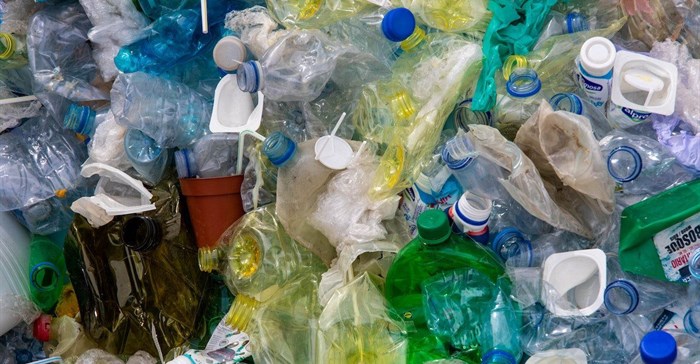
The Global Commitment and Plastic Pact network represents more than 1,000 businesses, governments and other organisations that have pledged to create a circular economy for plastic in which it never becomes waste. But the commitment to use only reusable, recyclable or compostable plastic packaging by 2025 will likely not be met, reveals the progress report by the Ellen MacArthur Foundation and UN Environment Programme (UNEP).
While measurable progress is being made against the Global Commitment, the use of flexible packaging and a lack of investment in collection and recycling infrastructure means the 100% reusable, recyclable, or compostable plastic packaging by 2025 target is becoming unattainable for most signatory businesses.
The report also highlights:
Four years after launching the New Plastics Economy Global Commitment, the 2022 annual report shows progress varies across the signatory group.
The share of post-consumer recycled content has risen from 4.8% in 2018 to 10.0% in 2021. Whilst it took decades for businesses to hit the 5% mark, signatories to the Global Commitment doubled it to 10% in just three years.
Brands and retailers must continue to exponentially increase their use of recycled content if they are to hit the aggregate target of 26% by 2025. Whilst some businesses appear on course to exceed their goal, others will need to significantly accelerate their use to achieve theirs.
Since 2018, more than half – 59% – of brands and retailers have reduced their use of virgin plastics. However, last year, increases by some of the biggest users of plastic packaging resulted in an overall rise of 2.5%, reversing the falls seen in 2019 and 2020.
The reason some businesses have not hit peak virgin plastic is due to increases in their total plastic packaging use. This reinforces the need for businesses to decouple growth from the use of plastic packaging.
In 2021, the first few global brands announced quantitative targets to increase adoption of reusable packaging. However, 42% of signatories have yet to introduce any reuse models into their packaging strategies.
Many businesses have been investing in ways to achieve 100% technical recyclability for rigid plastic packaging, but the benefit of this investment is being stifled by inadequate collection and sorting infrastructure around the world.
Flexible plastic packaging, such as sachets and films, pose a significant problem. The difficulty of recycling them - in practice as well as at scale - is a key reason why most businesses will miss their target of using only reusable, recyclable, or compostable plastic packaging by 2025.
Brands and retailers retain the potential to make a significant positive contribution to tackling the plastic pollution crisis, the Ellen MacArthur Foundation said in a statement.
To do so they must adopt ambitious strategies to scale up reuse schemes, innovate away from flexible plastic packaging where possible, and reduce their use of single-use packaging. Recycling alone is not sufficient to stop the flow of plastic pollution, the organisation said.
Around the globe, government support for an international, legally binding instrument to tackle the crisis continues to grow. However, a significant acceleration of policy efforts is needed to help address the problem and transition towards a circular economy for plastics.
Government signatories to the Global Commitment now represent one billion people. More than 500 businesses, governments, NGOs and other organisations have aligned themselves behind a common vision of a circular economy for plastics. The Ellen MacArthur Foundation and UNEP will continue to work with signatories to help tackle the plastic pollution crisis.
“The Global Commitment continues to provide unprecedented transparency on how major businesses are addressing the plastic pollution crisis. The latest findings demonstrate the need to urgently ramp up efforts – both from businesses and governments. Credible, ambitious plans are needed from businesses to scale reuse, to deal with the issue of flexible packaging and to reduce the need for single-use packaging. Governments must take action to help accelerate progress," said Sander Defruyt, the Ellen MacArthur Foundation’s Plastics Initiative lead.
She added, “In parallel, we must work towards establishing an ambitious global treaty to end plastic pollution. Organisations such as the recently launched Business Coalition for a Global Plastics Treaty – convened by the Ellen MacArthur Foundation and WWF – are here to help governments grasp this once-in-a-generation opportunity.”
“The transparency provided by the Global Commitment helps us understand how large the gap is that we still need to fill. It is clear that big challenges remain as companies seek to make good on the Global Commitment. As countries embark on negotiations towards a global instrument to end plastic pollution, the Global Commitment provides an important framework to help accelerate action on combating plastic pollution.
Inger Andersen, executive director, UNEP, added , By joining the Global Commitment and engaging early in the process, governments can identify priority areas to end plastic pollution effectively and accelerate progress. In this regard, we are pleased to see that 34 additional national and sub-national governments across different continents committed to join the Global Commitment since the beginning of 2022.” - said Inger Andersen, Executive Director, UNEP